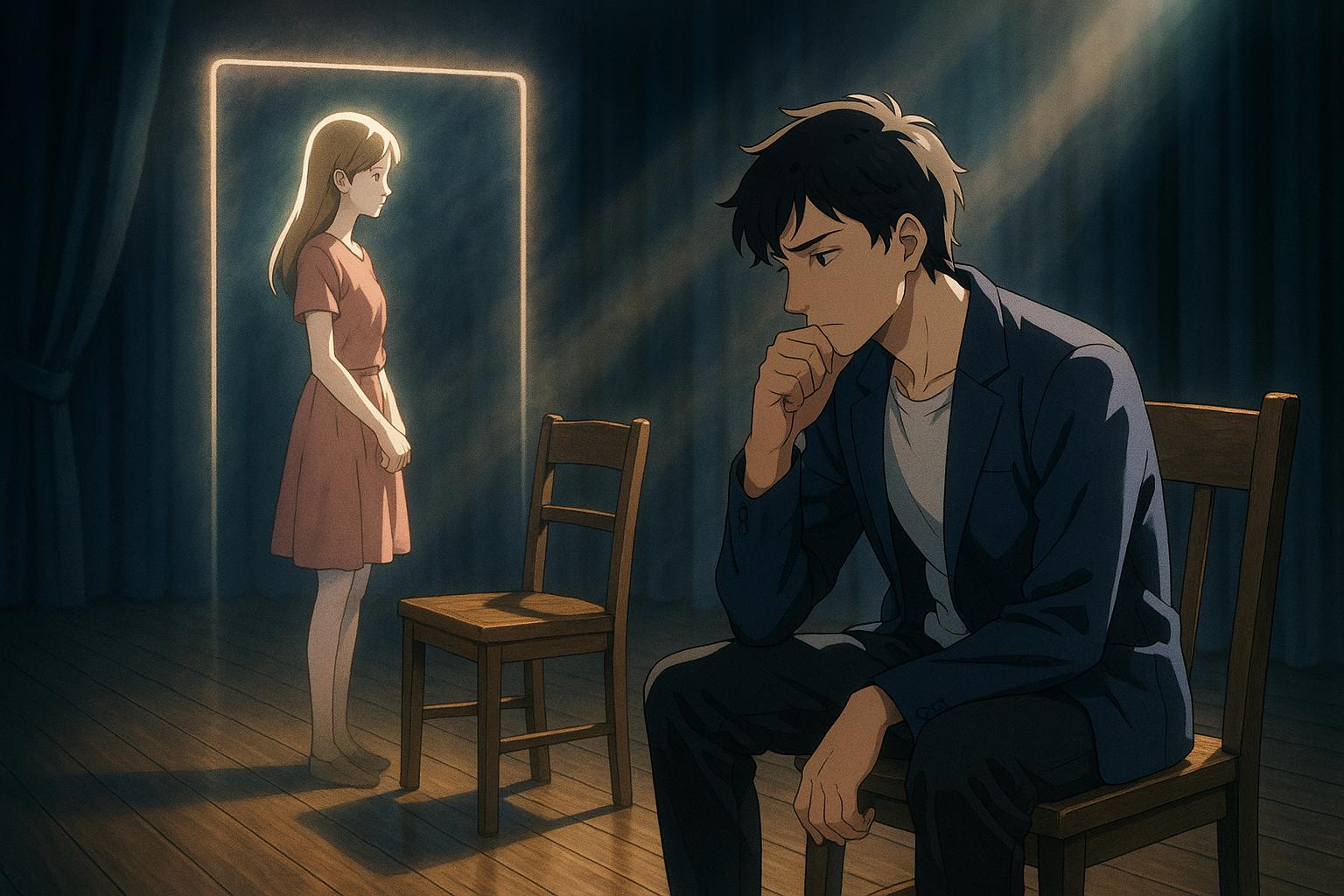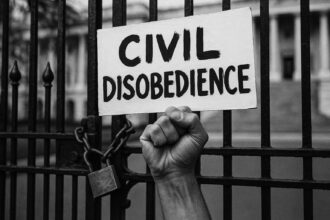Nathan Fielder’s groundbreaking Sky Comedy show, The Rehearsal, uses a unique docu-reality format to explore how rehearsing for pivotal life moments can reshape our understanding of authenticity, anxiety, and human connection.
A new entrant in the realm of television, “The Rehearsal,” has sparked conversations not only for its innovative format but also for its thought-provoking implications. This show, airing on Sky Comedy and Now, combines elements of comedy, documentary, and reality TV in a unique way, allowing viewers to witness ordinary individuals prepare for significant life events through meticulously staged rehearsals. Currently, the show focuses on a rather unconventional topic: preventing aviation disasters by enhancing cockpit communication.
The enchanting duality of “The Rehearsal” lies in its ability to capture the beautifully awkward experiences of its participants. As our reviewer aptly noted, the production team has succeeded in casting individuals who seamlessly blend the lines between “committed normie” and aspiring actor. This has led to speculation regarding the authenticity of these participants; however, they are undeniably real, adding an unpredictable dynamic to the carefully crafted scenarios that unfold on screen. This blurring of reality and performance challenges conventional perceptions of both reality television and the nature of preparedness itself.
While the central premise might seem outlandish, it resonates deeply with a growing audience keen on the psychology of rehearsals. The show raises compelling questions about how rehearsing for life’s pivotal moments might empower real people to take charge of uncertain futures. This theme of preparation is anything but trivial; it reflects broader societal anxieties about control and mastery over life’s unpredictable twists and turns, as well as the ways that preparation can impact our self-confidence and effectiveness in navigating social conventions.
Broadening the scope of relevant discussions, several commentators have remarked on the overarching themes resonant within “The Rehearsal.” Nathan Fielder, the show’s creator, is celebrated for his ability to straddle the fine line between fiction and reality. Critics have hailed his commitment to detail, with one stating that his meticulousness “sometimes leads viewers to question the very fabric of reality itself.” Such sentiments echo a recurring motif in contemporary media, where the exploration of what constitutes authenticity is becoming increasingly relevant.
Alongside this exploration of preparation and authenticity, “The Rehearsal” also invites reflection on societal expectations. In a world where individuals often feel pressure to perform according to certain norms, the show poses significant inquiries about the human experience in context. Is it possible that rehearsing for life’s challenging conversations or experiences not only prepares us for success but also alleviates the inherent anxiety surrounding public performance? As the series unfolds, viewers are invited to consider whether the act of rehearsing can lead to more meaningful interactions, both personally and socially.
As “The Rehearsal” continues to air, its thought-provoking approach may inspire more than just laughter; it could prompt audiences to rethink their own life events and how they might prepare for them. While the show injects humour into often serious themes, it remains grounded in an exploration of authenticity and the complexity of human emotions. This unique blend resonates with viewers, offering them not only entertainment but also a significant reflection on the human condition in our modern world.
In summary, “The Rehearsal” is not merely a television show; it serves as an insightful commentary on life, authenticity, and the peculiar beauty of preparation. The series is a compelling exploration of how we navigate the intricacies of our public selves, tackling profound themes that resonate well beyond the screen.
Reference Map:
- Paragraph 1 – [1], [2]
- Paragraph 2 – [3], [5]
- Paragraph 3 – [4], [6]
- Paragraph 4 – [4], [6]
- Paragraph 5 – [5], [7]
- Paragraph 6 – [1], [3]
Source: Noah Wire Services
- https://www.theguardian.com/culture/2025/may/31/the-rehearsal-to-the-ballad-of-wallis-island-the-week-in-rave-reviews – Please view link – unable to able to access data
- https://www.theguardian.com/culture/2025/may/31/the-rehearsal-to-the-ballad-of-wallis-island-the-week-in-rave-reviews – This article from The Guardian reviews ‘The Rehearsal’, a mind-boggling comedy-cum-documentary-cum-reality show that helps people prepare for big life events by staging hugely elaborate mockups. The show currently focuses on preventing aviation disasters by improving communication in the cockpit. The reviewer notes that the producers have managed to find civilians who are uniquely awkward, blurring the line between committed normie and aspiring actor, leading to accusations of being fake. However, they are all real.
- https://www.theguardian.com/tv-and-radio/2022/sep/16/the-rehearsal-the-docu-reality-show-that-will-break-your-brain – In this review, The Guardian discusses ‘The Rehearsal’, an unscripted comedy where Nathan Fielder prepares members of the public for big, uncomfortable real-life moments by meticulously rehearsing every conceivable way the moment could play out. The show delves into the murky space between fiction and reality, leaving viewers questioning the nature of reality itself.
- https://www.theguardian.com/lifeandstyle/2022/sep/25/we-could-all-be-better-parents-if-only-there-was-a-rehearsal – This article from The Guardian explores the concept of rehearsing for real-life situations, inspired by Nathan Fielder’s ‘The Rehearsal’. It discusses how the show uses elaborate sets and actors to help individuals prepare for difficult conversations or life events, questioning the idea of controlling our own futures through rehearsals.
- https://au.variety.com/2022/tv/reviews/nathan-fielder-the-rehearsal-review-hbo-4203/ – Variety’s review of ‘The Rehearsal’ highlights Nathan Fielder’s innovative approach to reality television, where he helps real-life individuals rehearse for significant moments in their lives. The review notes the show’s unique blend of comedy and reality, with Fielder’s meticulous attention to detail and the blurred lines between reality and fiction.
- https://www.bfi.org.uk/sight-and-sound/reviews/rehearsal-nathan-fielder-gets-nightmarishly-self-reflexive – Sight and Sound’s review of ‘The Rehearsal’ discusses Nathan Fielder’s exploration of reality and fiction, where he helps individuals rehearse for real-life situations. The review delves into the show’s self-reflexive nature, questioning the authenticity of reality television and the blurred lines between reality and performance.
- https://www.rottentomatoes.com/tv/the_rehearsal_2022/s01 – Rotten Tomatoes provides a 95% rating for the first season of ‘The Rehearsal’, with 58 reviews. The show is described as a mind-boggling comedy-cum-documentary-cum-reality show that helps people prepare for big life events by staging hugely elaborate mockups. The reviews highlight the show’s unique concept and execution.
Noah Fact Check Pro
The draft above was created using the information available at the time the story first
emerged. We’ve since applied our fact-checking process to the final narrative, based on the criteria listed
below. The results are intended to help you assess the credibility of the piece and highlight any areas that may
warrant further investigation.
Freshness check
Score:
10
Notes:
 The narrative is fresh, published on 31 May 2025, with no evidence of prior publication or recycled content. The Guardian is a reputable source, and the article appears original.
The narrative is fresh, published on 31 May 2025, with no evidence of prior publication or recycled content. The Guardian is a reputable source, and the article appears original.
Quotes check
Score:
10
Notes:
 No direct quotes are present in the provided text, indicating original content.
No direct quotes are present in the provided text, indicating original content. 
Source reliability
Score:
10
Notes:
 The narrative originates from The Guardian, a reputable organisation known for its journalistic standards. This enhances the credibility of the content.
The narrative originates from The Guardian, a reputable organisation known for its journalistic standards. This enhances the credibility of the content. 
Plausability check
Score:
10
Notes:
 The claims about ‘The Rehearsal’ Season 2 focusing on aviation safety and cockpit communication are consistent with other reputable sources, such as the Financial Times and TIME magazine. The narrative’s content aligns with known information about the show’s themes and reception.
The claims about ‘The Rehearsal’ Season 2 focusing on aviation safety and cockpit communication are consistent with other reputable sources, such as the Financial Times and TIME magazine. The narrative’s content aligns with known information about the show’s themes and reception. 
Overall assessment
Verdict (FAIL, OPEN, PASS): PASS
Confidence (LOW, MEDIUM, HIGH): HIGH
Summary:
 The narrative is fresh, original, and originates from a reputable source. The claims made are consistent with information from other reputable outlets, and there are no signs of disinformation or recycled content.
The narrative is fresh, original, and originates from a reputable source. The claims made are consistent with information from other reputable outlets, and there are no signs of disinformation or recycled content. 













